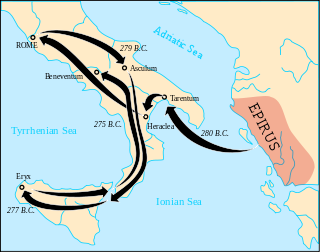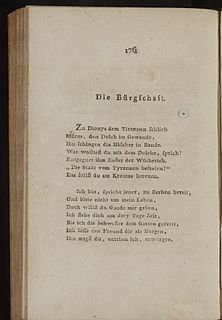
This article concerns the period 409 BC – 400 BC.
This article concerns the period 399 BC – 390 BC.
This article concerns the period 389 BC – 380 BC.
This article concerns the period 369 BC – 360 BC

This article concerns the period 309 BC – 300 BC.
Year 388 BC was a year of the pre-Julian Roman calendar. At the time, it was known as the Year of the Tribunate of Capitolinus, Fidenas, Iullus, Corvus, Flavus and Rufus. The denomination 388 BC for this year has been used since the early medieval period, when the Anno Domini calendar era became the prevalent method in Europe for naming years.
Year 361 BC was a year of the pre-Julian Roman calendar. At the time, it was known as the Year of the Consulship of Stolo and Peticus. The denomination 361 BC for this year has been used since the early medieval period, when the Anno Domini calendar era became the prevalent method in Europe for naming years.

Dionysius I or Dionysius the Elder was a Greek tyrant of Syracuse, in Sicily. He conquered several cities in Sicily and southern Italy, opposed Carthage's influence in Sicily and made Syracuse the most powerful of the Western Greek colonies. He was regarded by the ancients as an example of the worst kind of despot—cruel, suspicious and vindictive.
The story of Damon and Pythias is a legend in Greek historic writings illustrating the Pythagorean ideal of friendship. Pythias is accused of and charged with plotting against the tyrannical Dionysius I of Syracuse. Pythias requests of Dionysius to be allowed to settle his affairs. Dionysius agrees, on the condition that Pythias' friend, Damon, be held hostage and, should Pythias not return, be executed in his stead. When Pythias returns, Dionysius, amazed by the love and trust in their friendship, frees them both.

The Pyrrhic War was largely fought between the Roman Republic and Pyrrhus, the king of Epirus, who had been asked by the people of the Greek city of Tarentum in southern Italy to help them in their war against the Romans.

Damon and Pythias is the only surviving play by Richard Edwards. Written circa 1564 and first printed in 1571, the play chronicles the Greek friendship story of Damon and Pythias. It was originally performed by the Children of the Chapell for Queen Elizabeth, possibly during the Christmas season between 1564 and 1565.

Dionysius the Younger, or Dionysius II, was a Greek politician who ruled Syracuse, Sicily from 367 BC to 357 BC and again from 346 BC to 344 BC.

Hermia is a fictional character from Shakespeare's play, A Midsummer Night's Dream. She is a girl of ancient Athens named for Hermes, the Greek god of trade.
The Delicate Delinquent is an American VistaVision comedy film starring Jerry Lewis, released on June 6, 1957 by Paramount Pictures. It was the first film to star Lewis without his longtime partner Dean Martin and marked Lewis' debut as a producer and screenwriter.

The Seventh Letter of Plato is an epistle that tradition has ascribed to Plato. It is by far the longest of the epistles of Plato and gives an autobiographical account of his activities in Sicily as part of the intrigues between Dion and Dionysius of Syracuse for the tyranny of Syracuse. It also contains an extended philosophical interlude concerning the possibility of writing true philosophical works and the theory of forms. Assuming that the letter is authentic, it was written after Dion was assassinated by Calippus in 353 BC and before the latter was in turn overthrown a year later.
The First Letter of Plato, also called Epistle I or Letter I, is an epistle that tradition has ascribed to Plato, though it is almost universally considered a forgery. In the Stephanus pagination, it spans III. 309a–310b.

"The Pledge" is a ballad published by the German poet Friedrich Schiller in his 1799 Musen-Almanach. He took the idea out of the ancient legend of Damon and Pythias issuing from the Latin Fabulae by Gaius Julius Hyginus, as rendered in the medieval collection of the Gesta Romanorum. It magnifies the belief in the love of friendship and fidelity.
"Run, Melos!" is a Japanese short story by Osamu Dazai. Published in 1940, "Run, Melos!" is a widely read classic in Japanese schools.
Dion, tyrant of Syracuse in Sicily, was the son of Hipparinus, and brother-in-law of Dionysius I of Syracuse. A disciple of Plato, he became Dionysius I's most trusted minister and adviser. However, his great wealth, his belief in Platonism and his ambition aroused the suspicions of Dionysius I's son and successor, Dionysius II. An indiscreet letter from Dion to the Carthaginians led to his banishment. Settling in Athens, he lived a prosperous life until Dionysius II dispossessed him of his estates and income. Landing in Sicily in 357 BC, he was successful in conquering Syracuse. However, Dion soon quarrelled with the radical leader Heraclides and was forced into exile. Recalled in 355 BC, he became master of the whole city but his imperious behaviour and financial demands on the people of Syracuse soon alienated the population. His supporters abandoned him and he was assassinated. His attempts to liberate Sicily only brought political and social chaos to the island which would last for nearly 20 years.








